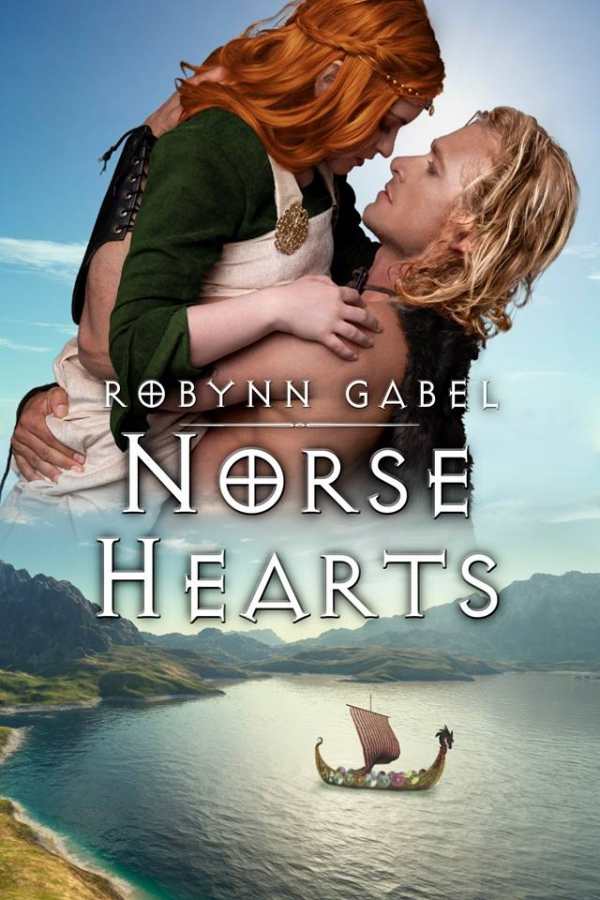Norse Hearts
- 2018 INDIES Finalist
- Finalist, Historical (Adult Fiction)
The novel doesn’t gloss over the realities of Viking life but is careful to draw characters with shaded nuances.
Robynn Gabel’s bristling ninth-century romance Norse Hearts forges an unlikely match against the violence of the era.
When a mercenary Viking, Einar, is tasked with killing Seraphina, the Angles daughter of a landowner, he kidnaps her for ransom instead. Without realizing that her own fiancé, Cecil, ordered her murder—a fact Einar and readers know early on—Seraphina finds herself bound to the seafaring people she believes are heathens. A surprising, well-planned series of turns charts Seraphina’s transformation from a Ladye of Britain on the eve of her wedding to a Nóregr shield-maiden embroiled in battle.
Tough as the premise seems, Seraphina’s kidnapping is framed as a turning point that even she regards as fortuitous. The book subverts expectations on what is tragic and what is life affirming through the skillful unfolding of key information. Einar’s tactical decision to renege on completing his mission by sparing Seraphina also stirs unexpected complications. While there’s seldom doubt that the outspoken heroine will fall in love with her captor, and that she’ll face the truth about Cecil, there’s plentiful adventure to keep the plot intriguing.
Between Seraphina’s attempts to escape and Einar’s recaptures, tension morphs into genuine understanding. Light comedy in their verbal sparring balances some of the harsher scenes. As Seraphina moves from fighting Einar to seeing strength in his character, their relationship turns less circumstantial than fated.
Throughout, a complex thread details Einar’s longstanding difficulties with his stepbrother Gunnar, as well as political alliances among the Old Norse jarls. Seraphina finds herself witnessing a fascinating series of family grievances. Brutality and betrayals underscore the darkness of the time, as do relationships formed through rape.
The novel doesn’t gloss over the realities of Viking life but is careful to draw characters with shaded nuances. Themes of loyalty, justice, community, honor, and forgiveness build toward an unusual portrait of acceptance that crosses religions and cultures.
Among the secondary characters, Dagfinn stands out as Einar’s guard and the ship’s favored wit. An empathetic Angles-turned-Viking, he serves as the bridge between Seraphina and the others, becoming a trusted friend. Roald, Einar’s jarl, also emerges as a man with varied experiences that are simultaneously repugnant and noble. Here, people are neither entirely good nor bad, but are rather the sum of their multiple choices.
With its strong lead and talent for plotting, this is a satisfying exploration of what happens when hard sacrifices wind into blessings. That Seraphina manages to change her homeland and outlook while still retaining the very traits that make her survival possible—including a sometimes foolhardy, often brave defiance—is both dramatic and thoroughly earned.
Reviewed by
Karen Rigby
Disclosure: This article is not an endorsement, but a review. The publisher of this book provided free copies of the book and paid a small fee to have their book reviewed by a professional reviewer. Foreword Reviews and Clarion Reviews make no guarantee that the publisher will receive a positive review. Foreword Magazine, Inc. is disclosing this in accordance with the Federal Trade Commission’s 16 CFR, Part 255.

